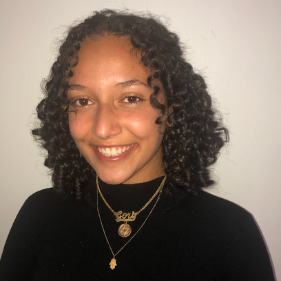Better Than a Comfort Zone: My Hillel Journey

In the fall of 2017, after a summer of anticipation and impatience, I arrived an eager freshman at Tulane University. Even though I had been attracted to the prevalence of Jewish life at the school when applying, Jewish involvement and my own Jewish identity was not really on my mind in that moment. Up until that point in my life, it never really had to be.
But I quickly realized that certain things made me different from other Tulane students.
I was raised by Yemenite Israeli parents in Great Neck, a town about 30 minutes from New York City on the north shore of Long Island. Great Neck is predominantly Jewish, and the Great Neck Jewish community is made up mainly of Jews of Middle Eastern descent, particularly Persian Jews.
This upbringing did not prepare me for the culture shock of an American university, where most people had never met a non-Ashkenazi Jew. At the same time, Judaism had always been present in my life growing up, and therefore it was something I never had to be particularly conscious of.
I began to realize how seemingly ‘foreign’ my upbringing was to other people. The Jews I knew were all either immigrants or children of immigrants, bilingual (speaking their parents’ native tongue fluently), and helping their parents with their English. Traditional Western academia was not a familiar realm in my family; I would be the first in my family to graduate college—if I made it through.
I was surprised at how hard it was for me to relate to Jewish life on campus. The Jewish food was different from the Jewish food I knew, the prayers were sometimes unrecognizable to me, and the culture felt at times at odds with what I had grown up with. It simultaneously challenged and fascinated me— so much so that I decided to make Jewish Studies my primary major. Learning about Jewish history allowed me to feel connected to global and historic Jewry on a stronger and deeper level.
As I became immersed in Jewish learning, I came to deeply appreciate the fact that Tulane Hillel was not just a mirror image of the kind of Jewish community I knew from Great Neck. It wasn’t supposed to be. In fact, it became a different kind of resource to me—one that helped me expand my horizons and connect to that broader Jewish world I had begun to study in my classes.
Jewish people have had diaspora experiences in hundreds of different countries, and Jews have always been a diverse tribe. Hillel created a connection and an opportunity for me to learn more about those other Jewish communities and let the broader Hillel community learn from me as I began to rethink my Jewish identity, viewing myself and other Jewish people as meaningful links in the chain of Jewish history.
My onramp to those connections ended up being a leadership role in event programming at Tulane Hillel. From organizing Israel-themed Shabbat and planning our annual Israel Fest, to helping incorporate Mizrachi cuisine to diversify Break Fast food options after Yom Kippur, taking on programming gave me both a sense of belonging and an individual sense of self. By senior year, I was interning for Tulane Hillel: recruiting student leaders for the Maccabee Task Force trip to Israel, helping organize and execute our annual Israel Fest, and speaking to incoming students about what they can expect from Tulane Hillel.
With graduation approaching, I’ve been thinking a lot about how Tulane Hillel has enriched my college experience. It certainly played a different role than I imagined it would back in 2017. The place I expected to be my comfort zone became the place that helped me push my own boundaries. I’m grateful that my Jewish world has expanded and diversified so much in these last four years, thanks in large part to my involvement in and connections through Hillel. And I’m also grateful for the ways I’ve been able to enrich Tulane Hillel in return—sharing my knowledge, my experience, and my time to ensure I am part of creating the most vibrant and inclusive Jewish space possible.